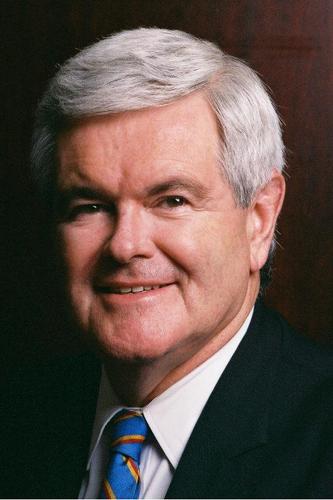U.S. politician and speaker of the U.S. House of Representatives known for his combative leadership style and attention-getting confrontational tactics against the Democratic party.
Background
Newton Leroy McPherson was born on June 17, 1943, in Harrisburg, Pa.; his name was changed to Gingrich when he was adopted by his mother's second husband at the age of three. After graduating from Emory University in 1965, "Newt" Gingrich went on to receive a master's degree and, in 1971, a Ph.D. in modern European history from Tulane University. While completing his doctorate he joined the faculty of the history department of West Georgia College. Ambitious and restless, he ran, unsuccessfully, for the House of Representatives in 1974 and 1976. After moving further to the right politically, and running on a platform of lower taxes and opposition to the Panama Canal treaty, Gingrich was elected in 1978.
Career
As a freshman congressman, Gingrich quickly emerged as a leader among young Republicans in the House who were more aggressively conservative and partisan in their aspirations, views, and tactics. With the advent of the Reagan administration in 1981, Gingrich found himself in the limelight as an active and visible promoter of such conservative causes as tax cuts and school prayer. His visibility increased even more, however, with his attacks in 1989 on Democratic Speaker of the House Jim Wright's financial dealings, which were alleged to circumvent congressional limits on outside income and violate congressional ethics. Wright eventually resigned before the House ethics committee had officially brought charges and Gingrich was named House minority whip, in which capacity he served until 1995. Gingrich himself, however, became the subject of numerous ethics allegations, including those over funds from a book deal, misuse of money from federal subsidies for a class he taught, and the financial activities of GOPAC, the political action committee he chaired.
The 1994 congressional elections swept the Republican party into control of both the House of Representatives and the Senate. During the election campaign Gingrich spearheaded a huge promotional effort on behalf of the conservative wing of the party with the so-called "Contract with America," a statement of the conservative social and economic agenda that promised a "second American revolution." The Contract with America called for, among other things, congressional term limits, cuts in welfare, and a mandatory balanced federal budget. The landslide Republican victory, coupled with the action-oriented tone of this conservative manifesto, propelled Gingrich to election as speaker of the House in 1995. His active and confrontational leadership style led to many partisan conflicts with the Democratic minority and the Clinton administration over legislation, especially when it came to Republican efforts to cut funding for environmental protection, Medicare, and welfare.




